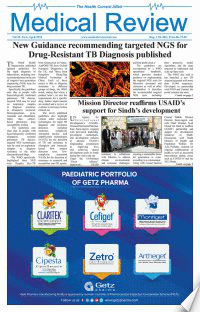By Usman Waheed
Chair,
Board of Certification Pakistan,
American Society of Clinical Pathology (ASCP)
Knowledge creation and dissemination are crucial for the economic growth and development of a country. Colleges and universities are central to this enterprise. The government of Pakistan is keen to create world-class universities and introducing new courses. This has embarked on a major reform process over the last one and a half decade as we see new degree programme being offered from universities.
In the medical profession, for nearly five decades, the traditional recognized degree remained the bachelor in medicine, surgery (MBBS) and dentistry (BDS). However, the career in medical field isn’t limited to being a doctor, as the entire sector is filled with numerous possibilities in the shape of allied health professionals. A successful doctor or a hospital is nothing without its trained allied health professional (AHP). The staff can be anybody ranging from a nurse to medical laboratory technologist. They are important part of therapy both before and after the treatment. In the age of specialisation, a host of AHP courses, catering to every field, are emerging as new favourite for students. The career as allied health professional has satisfaction, money and social service all included in one.
Among the allied health profession, the field of Medical Laboratory Technology (MLT) has grown into a specialized arena with MPhil and PhD degrees being offered. The degree is job-oriented so preferred by the society. The MLT fraternity has grown from a hospital laboratory technician to a laboratory director and laboratory scientist. The current medical laboratory professionals are not only required to perform pathological tests, but also be hands-on and positive as well as have problem-solving skills. They are foreseen as quality ambassadors to upgrade the diagnostic test systems resulting in the premier level of management competence.
Due to the heavy student influx and money-making on part of the MLT colleges, this has become a very lucrative business. Huge numbers of institutes have flourished to existence to fill the human resource gap in pathological laboratories. And the education offered in these institutes is of poor quality and needs standardization in terms of curricula, faculty, premises, available laboratory facilities, etc. The student strength has more than doubled while the number of those on hand to teach them has dwindled to a quarter. Quantity affects quality in such matters. This is a shame in itself. More, it mocks our’ ambition to become a developed, modern, knowledge economy. The online versions of these courses are also been made available and attracting hundreds of students. The key to success for MLTs is to have methodical, organized, uniform educational skills to support them stay conversant about developments in educational and technical systems throughout their professional careers.
Revisiting the medical laboratory technology profession and trying to reposition, rejuvenate, and restructure its present curriculum to meet and, if possible, surpass the currently accomplished standard of healthcare services is critical to further reform health care in Pakistan in the 21st century. There is an urgent need to formulate the ‘rules of this business’. The Government has to ensure the quality of MLT education as per international declarations. It is vital at this stage that a Council on the template of PMDC (Pakistan Medical and Dental Council) should be formed on war footings. The Council will then regulate the institutes imparting education and the laboratories hiring them.


